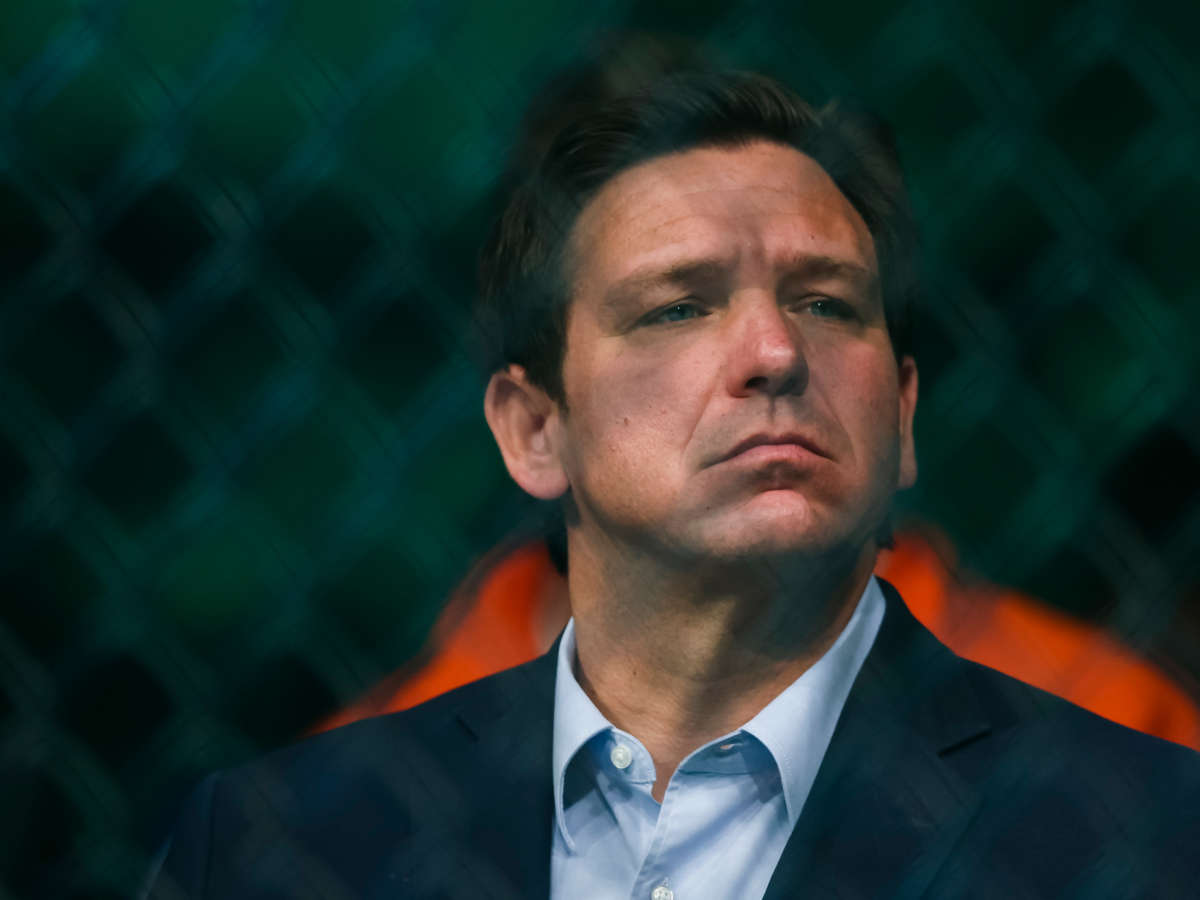The Florida Department of Education announced last week that it was rejecting the use of dozens of mathematics textbooks in K-12 public schools throughout the state, ostensibly because they contained content that discussed critical race theory.
When asked to provide examples, however, neither the department nor Gov. Ron DeSantis (R) would do so, in spite of claiming that the process had been “transparent.”
In a statement lauding the decision to reject the titles, DeSantis said that he was “grateful” that the department “conducted such a thorough vetting of these textbooks to ensure they comply with the law.” The department stated that it had engaged in a “transparent instructional materials review process” that “ensures the public has the opportunity to review and comment on submitted textbooks.”
But critics noted that the titles of the books — and examples of why the books had been rejected — were not readily provided to the public.
Fifty-four mathematics books were rejected by the state in total, amounting to 41 percent of the 132 titles that were submitted for review. The department did not include the names of the books that were rejected, leaving Floridians and news media unable to scrutinize the state’s decision to ban their use.
“@EducationFL just announced they’re banning dozens of math textbooks they claim ‘indoctrinate’ students with CRT. They won’t tell us what they are or what they say b/c it’s a lie,” contended state Rep. Carlos Smith (D).
Andrew Spar, president of the Florida Education Association, blasted DeSantis and the state Department of Education for not being forthcoming about their decision-making process.
“If elementary-level textbooks are rejected for critical race theory or social emotional learning how about further defining those terms, and giving examples of objectionable content?,” Spar asked in a series of tweets. “Who reviewed the textbooks, and what are their qualifications?”
DeSantis’s spokesperson, Christina Pushaw, responded to the criticism by tweeting images of math homework that she said was inappropriate and worthy of rejection from the state. However, the homework she shared was from an unapproved assignment a teacher gave students in Missouri, not Florida.
DeSantis claims his administration’s refusal to share the titles he deemed “indoctrinating” was because such material is “proprietary.” But Christopher Finan, executive director of the National Coalition Against Censorship, said that the lawmaker’s refusal to share the titles is troubling.
“Textbook selection has always been a highly politicized area. It is not a surprise that textbooks are being attacked,” Finan said to The Miami Herald. “It just seems so bizarre that they managed to find [critical race theory] in math textbooks. It is direct from satire.”
Conservative lawmakers across the nation have turned critical race theory — a collegiate-level set of studies that examines the intersection of race, racism and U.S. law — into a new election-year boogeyman, despite the fact that the framework rarely, if ever, makes its way into K-12 classrooms. But policies and legislation seeking to ban critical race theory have resulted in a chilling effect on teachers’ lesson plans — making it difficult for educators to effectively teach about the history of racism in the United States.


